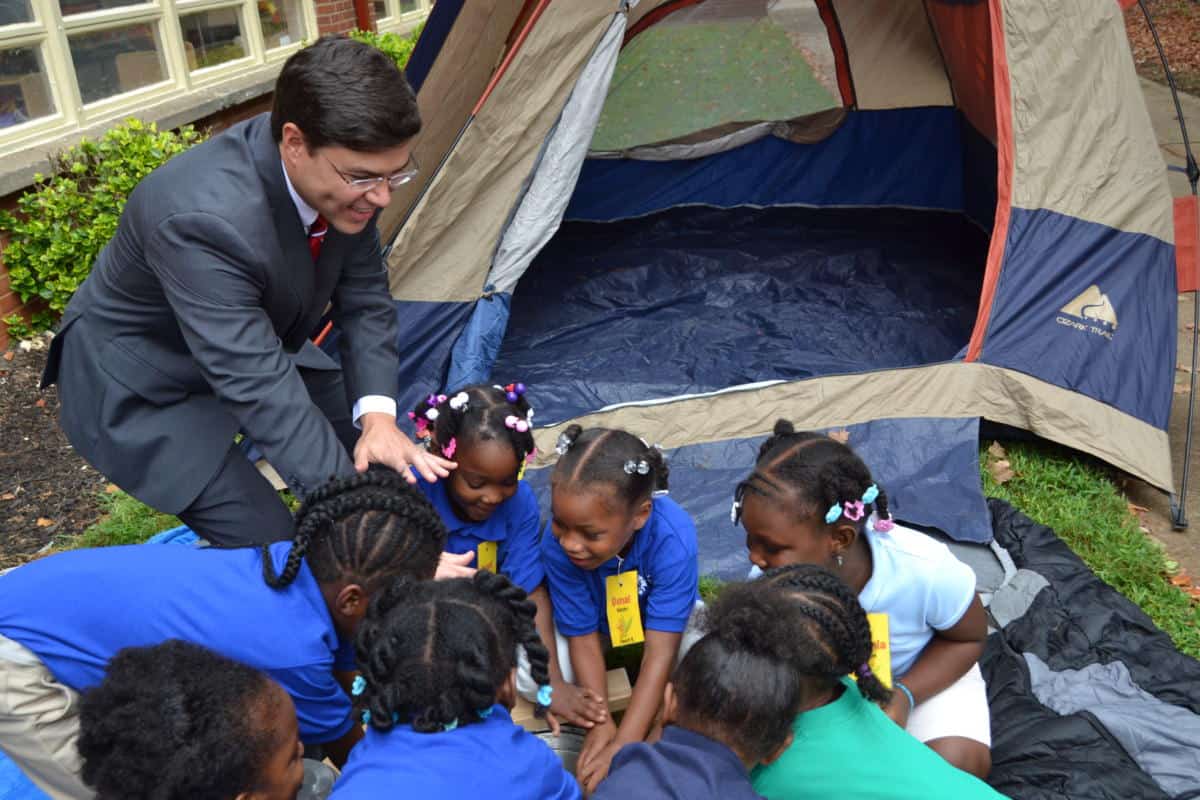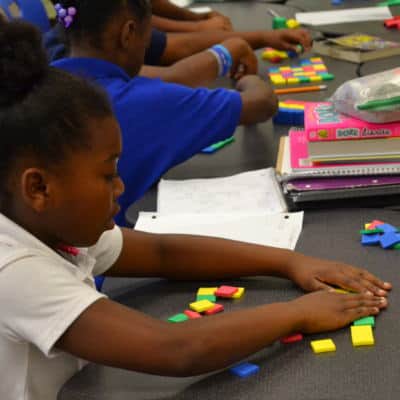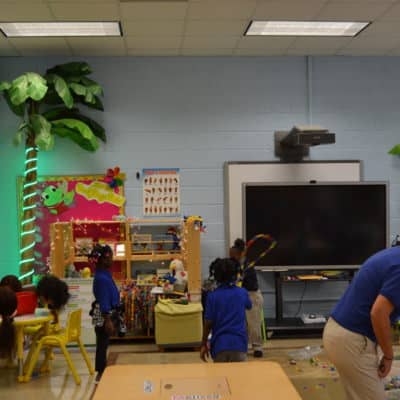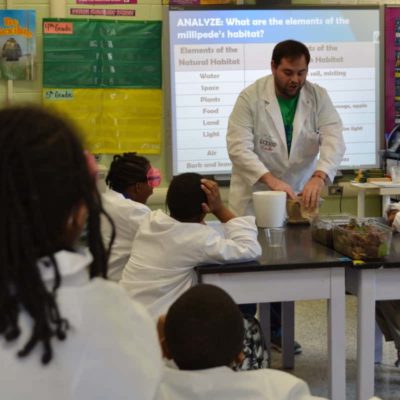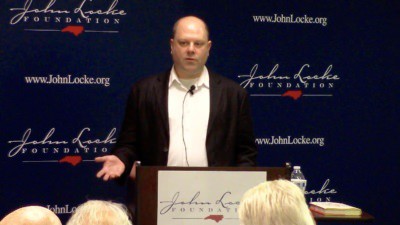Mark Johnson, Winston-Salem/Forsyth school board member and Republican candidate for state superintendent, is all about thinking outside the box.
In a debate a couple weeks ago against Democratic incumbent June Atkinson, Johnson kept using words and phrases like “urgency,” and “getting outside the status quo,” and he warned against a “one-size-fits-all approach,” saying that, “more of the same is not going to fix these issues.” And, as an example of the creativity he says is needed to turn around low-performing schools, Johnson brought up Cook Literacy Model School.
Just a few days before the debate on September 25, Johnson visited Cook to check in on the school’s progress and see how one of the state’s lowest-performing schools is starting over.
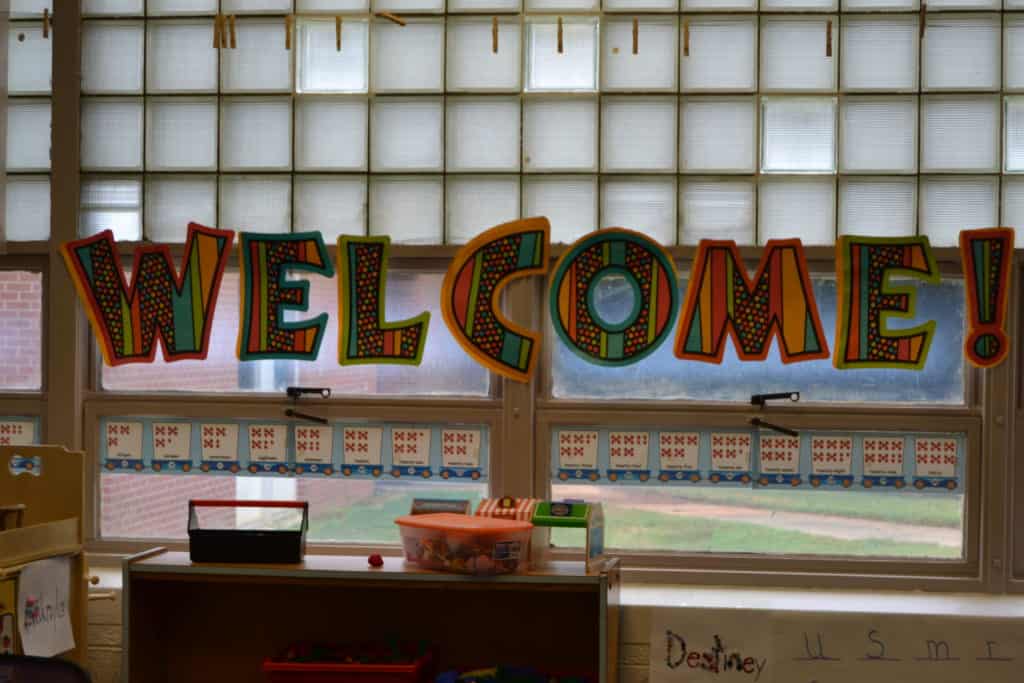

The school opened as Cook Literacy Model School, previously just Cook Elementary, this fall. It was identified as a Priority School by the federal government as one of the lowest-performing Title I schools in the nation, and it became the district’s first “innovative school.” In August, the State Board of Education also gave Cook “restart” status, which gives the school charter-like flexibility on how it can use state funding.
“We were able to say, ‘We’re going to completely re-invigorate everything about this school,'” Johnson said.
That began with fresh paint, new walls that are also white boards, and desks and chairs that have wheels so the classroom is easy to shape based on that day’s needs. The school day became a little bit longer, as did the yearly calendar. Flexibility was given for both curriculum and testing requirements. And every teaching spot was opened up for applications to the public.
That means every staff member at Cook is new except for three people — including first-time principal Paula Wilkins. She started at the end of March to hire a brand new staff, renovate the building, and provide intense professional development for teachers on the new curriculum.
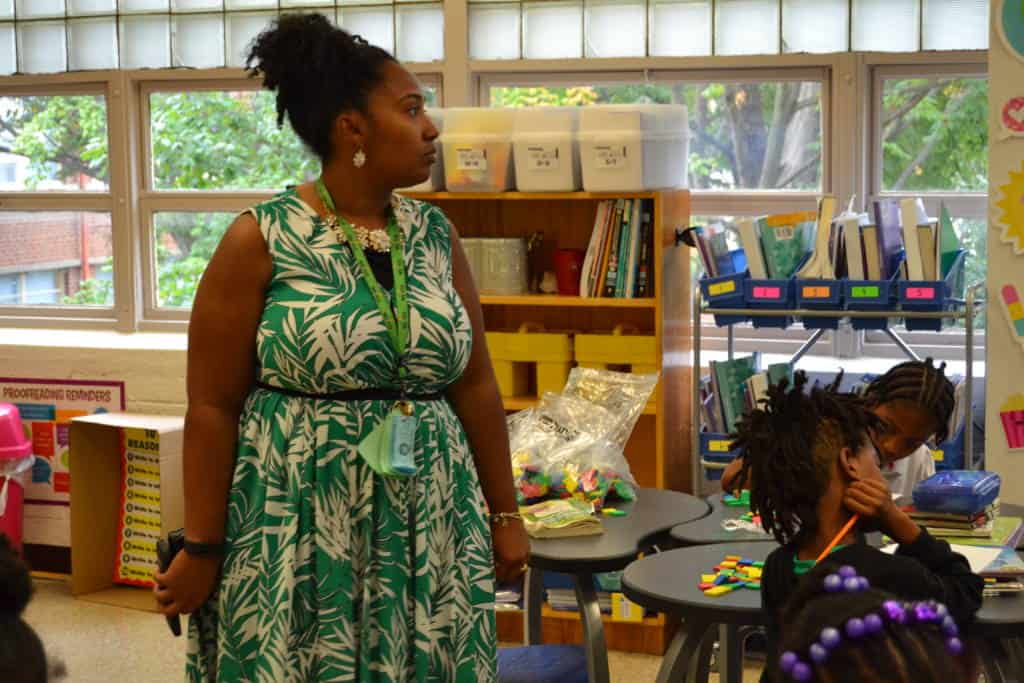

Wilkins said a major part of assembling the right team was understanding the applicants’ philosophy and asking the question: “Are you here to save or serve?”
“And if they said save, that’s not what we’re looking for,” Wilkins said. “This is a service that we do every day — working in service of families, in service of students, and in service of each other.”
Service is one of the five core values at Cook, along with creativity, integrity, perseverance, and courage. Now that the school year is under way, Wilkins said the team is focused on living out those words and leaning on each other, despite challenges that arise each day.
“Every day is a new day, and some days, it feels like starting over,” Wilkins said. “And that’s okay.”
Wilkins said the community that has already begun to form around the school has been one of the most exciting parts of the restart process to witness. The night before we spoke, Wilkins said they had their first PTA meeting. The year before, it only had eight members.
“And going into the first meeting, we already had 25 members,” Wilkins said. “Our moms who signed up to be officers were so excited. One of them came in this morning and said they’re meeting this weekend.”
One of those moms, Wilkins said, was going to withdraw her child from Cook. Wilkins refused to sign off on that until she spoke with the student’s parents. Wilkins asked the mother, before she made a final decision, to attend the open house. The mother saw the passion of the teachers and chose to stay. Since, Wilkins said she sees her in the school and talks to her daily.
“She knows she’s a part of our community,” Wilkins said. “I tell her every day, ‘I need your help.'”
Johnson listened in on classrooms and spoke with teachers and students. He said making the classroom exciting to students goes a long way. At Cook, that was obvious.
In one class, a teacher had set up a tent right outside the classroom with sleeping bags and an artificial campfire. Kids crowded around to “warm up” with Johnson. In another, there were palm trees and bright-colored lights and tables. Children were assigned a role for the day. A couple students, as classroom greeters, came to shake hands with Johnson, along with Winston-Salem board chair Dana Jones and board member Lori Clark, who were also visiting.
“Welcome to our classroom,” each of them said as they stuck out their little hands.
In math, the teacher used a smart board to go through multiplication tables and children assembled little chips into groups to help learn the concept in a hands-on way. In English, there were chairs that allowed students to move as they learned. In breakout reading groups, some students grabbed bean bags and others laid on the floor. And in science, the students wore white lab coats and goggles as they learned about habitats and performed a science experiment. The class bearded dragon, Skeeter, looked on.
As Johnson thinks about implementing education policy statewide as superintendent of public instruction, he said he sees Cook as a model. He said it’s all about asking local leaders, “What do you need in your classroom and how do we get it for you?” and then putting faith in those leaders to invest in students.
“You have to get down to the most important relationship in the school,” Johnson said. That would be the connection, he said, between the teacher and the student. To support that relationship, he said, you have to get creative. “In Forsyth County, we’re not just thinking outside the box, we’re not even in a box.”
